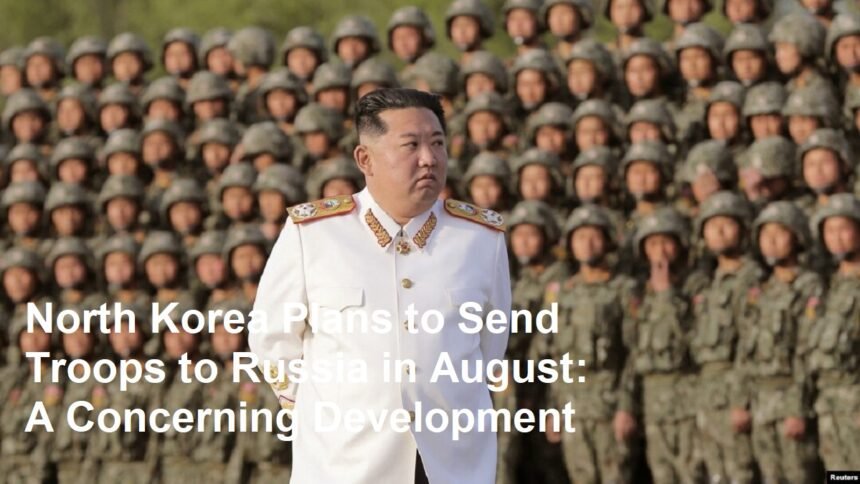Introduction
In a move that has raised international alarms, North Korea is reportedly preparing to deploy its military personnel to Russia as early as August 2024. This unprecedented decision could significantly escalate tensions in the ongoing conflict between Russia and Ukraine, while further complicating geopolitical dynamics in the region.
Details of the Deployment Plan
According to intelligence reports from South Korean and U.S. officials, North Korea has agreed to send engineering and construction units to Russian-occupied territories in Ukraine. These troops are expected to assist in rebuilding infrastructure and possibly supporting defensive operations. While Pyongyang and Moscow have not officially confirmed the deployment, satellite imagery and military movements suggest preparations are underway.
This development follows a series of high-level meetings between North Korean leader Kim Jong Un and Russian President Vladimir Putin. In 2023, Kim visited Russia’s Far East, where military cooperation was believed to be a key discussion topic. Since then, North Korea has supplied Russia with artillery shells, missiles, and other weapons in exchange for food, energy, and potential technological assistance for its nuclear program.
Why Is North Korea Sending Troops?
Analysts suggest several motives behind Pyongyang’s decision:
- Strengthening Russia-North Korea Alliance– Both nations face severe Western sanctions and seek to bolster their partnership against the U.S. and its allies.
- Economic Gains– Sending workers abroad could provide North Korea with much-needed foreign currency, despite UN sanctions prohibiting such labor exports.
- Military Experience– North Korean soldiers may gain real combat experience in Ukraine, which could later be utilized in future conflicts.
International Reactions
The potential deployment has drawn sharp criticism from the U.S., South Korea, and NATO. A U.S. State Department spokesperson warned that such actions would “only deepen North Korea’s isolation and provoke further sanctions.” South Korea’s Defense Ministry called it a “blatant violation of UN resolutions,” while Ukraine condemned any foreign military support for Russia as “unacceptable.”
Meanwhile, China, a key ally of both Russia and North Korea, has remained silent on the issue. Beijing’s stance will be crucial, as it could either restrain Pyongyang or tacitly support the move.
Potential Consequences
If North Korean troops are deployed, the ramifications could be severe:
- Escalation in Ukraine– Additional manpower could aid Russia’s war effort, prolonging the conflict.
- Increased Sanctions– The U.S. and EU may impose stricter measures on both North Korea and Russia.
- Regional Instability– South Korea and Japan may strengthen their military postures, raising tensions in Northeast Asia.
Conclusion
North Korea’s plan to send troops to Russia marks a dangerous new phase in the Ukraine war and global geopolitics. If carried out, it could solidify a Moscow-Pyongyang axis, challenge international sanctions regimes, and further destabilize global security. The coming weeks will be critical in determining whether this deployment proceeds and how the world responds.












